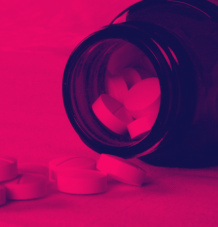TGA links probed
 Experts say Australia’s main drug regulator might be too cosy with the companies it regulates.
Experts say Australia’s main drug regulator might be too cosy with the companies it regulates.
Drug regulatory agencies around the world have large proportions of their budgets funded by the industry they regulate.
Australia's Therapeutic Goods Administration (TGA) receives about 96 per cent of its budget from industry fees, and in 2020-2021 approved more than nine of every 10 drug company applications.
“The TGA was founded to be an independent institute. However, being largely funded by fees from the companies whose products it is charged to evaluate is a fundamental conflict of interest and a prime example of institutional corruption,” says sociologist Donald W Light of Rowan University in New Jersey, who has spent decades studying drug regulation.
This strong reliance on industry money could create clear conflicts of interest. The concern about these conflicts is not just directed at those who work for the regulators, but extends to the advisory panels intended to provide regulators with independent expert advice as well.
As evidence of the issue, a recent global review found that most drug regulatory agencies do not undertake their own assessment of individual patient data, but rather rely on summaries prepared by the drug sponsor.
Industry fees are also used to help speed up approval of new treatments.
All major regulators offer “expedited pathways”, but there is concern that quicker approval decisions have resulted in new drugs that were more likely to be withdrawn for safety reasons, more likely to carry a subsequent black box warning, and more likely to have one or more dosage forms voluntarily discontinued by the manufacturer.
The review also exposes a regulator-industry “revolving door” that has seen many agency officials end up working or consulting for the same companies they regulated.
Experts say that both small and large structural changes are necessary to help restore regulators’ ability to carry out independent decision making, free of industry influence.
Donald Light argues that regulators now need their own watchdog and is calling for a drug and vaccine safety board, independent of the drug regulator, with the authority, staffing, and funds to investigate incidents of patient harm.
“Countries have independent safety boards for airlines and their passengers. Why not for drugs and patients too?” he says.
More details are accessible here.








 Print
Print